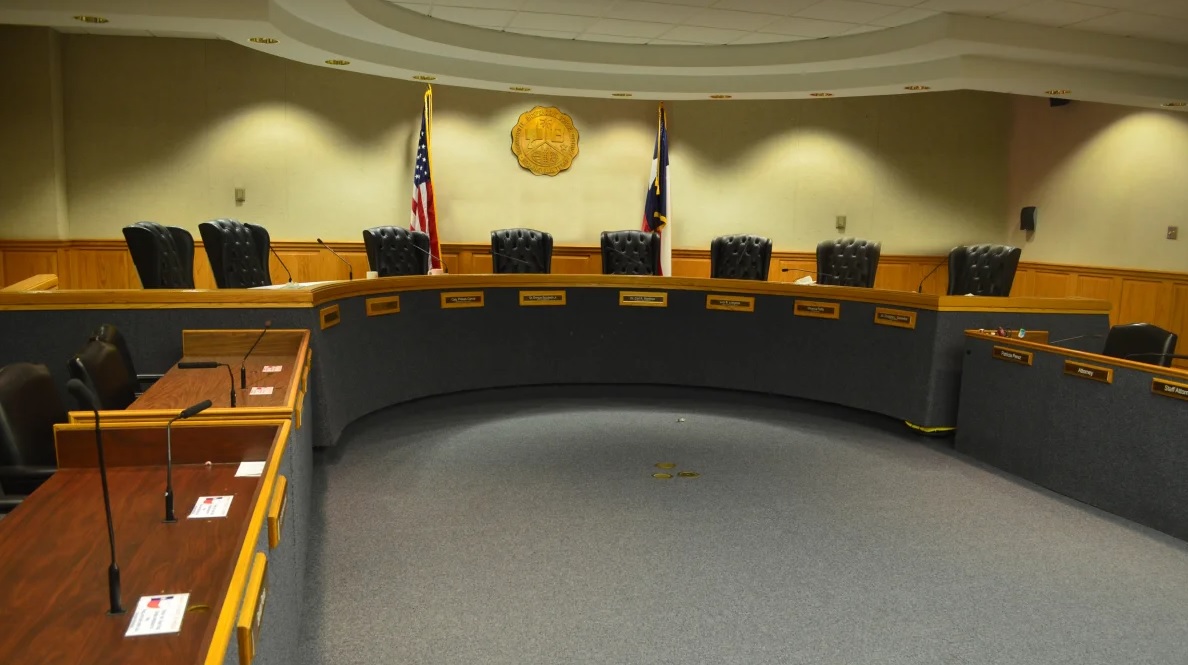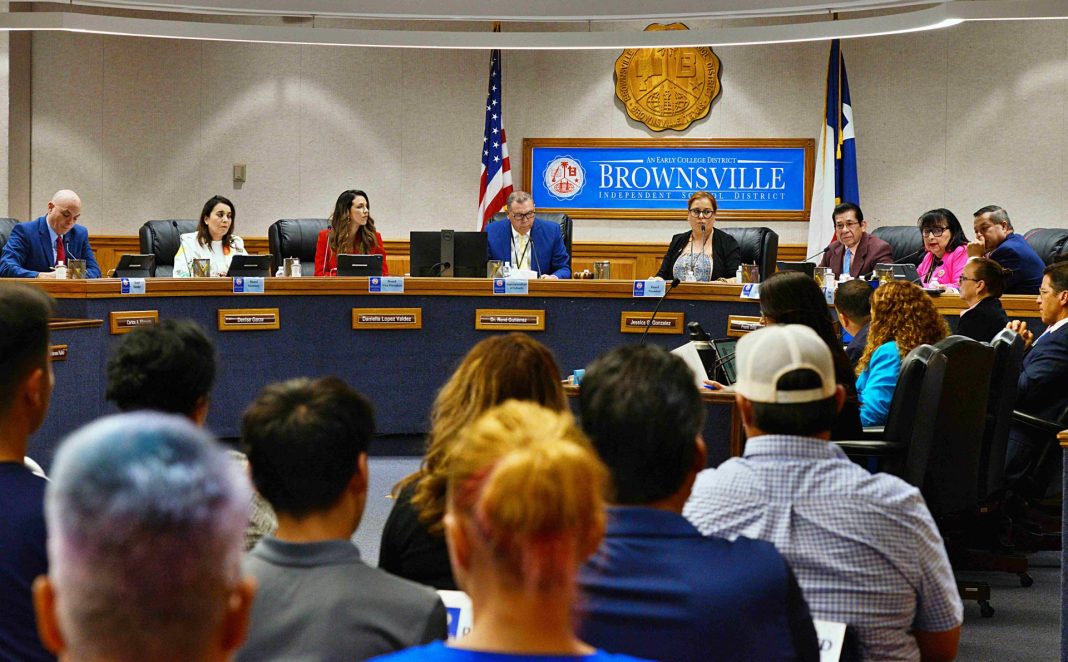|
Only have a minute? Listen instead
Getting your Trinity Audio player ready...
|
Brownsville Independent School District trustees have approved a $750 retention stipend for all employees amid looming budget concerns that hinge on future decisions by the Legislature.
Trustees approved the stipend on Tuesday, reluctant to do more until they get answers from Austin, where school funding is stalled in a fight with Gov. Greg Abbott over spending public school money for private school vouchers.
In the meantime BISD is operating on a deficit 2023-2024 budget that uses $24 million of fund balance.
“My worry long term for the district is that as you think about the $24 million, some of that is that is ongoing. The $10 million of counselor salaries, teacher salaries, educational software, the tutorials, those are ongoing costs. Are we going to be able to cut the other $14 million, I don’t think we are, so just a caution that as we use fund balance dollars we keep that in mind,” Interim Superintendent Jesus H. Chavez said.
Chavez said he has met with BISD’s professional organizations, none of which ever want the district to be in a position of cutting staff. He said that in his 35 years as a teacher, administrator and superintendent, only once did it come down to that, in 2011 when the Legislature cut $6 billion from education funding statewide.
In every other year, teachers and educational staff have gotten a raise of some kind.
The board’s discussion was about next year’s budget even though the item on the table was a one-time stipend. The proposal started at $1,500, which would have cost about $9 million, Chief Financial Officer Alejandro Cespedes said. Trustees pared the figure to half that, $750 for $4.5 million.
Cespedes said payroll is working to calculate back pay owed to employees due to the 2% pay raise approved by voters in the November Tax Ratification Election in time to include it in December paychecks.
The TRE came after legislators lowered property taxes and tied school funding to state property values as opposed to local.
During the regular session, legislators “approved some additional funding for education but they could never agree on how to give it out, what portion goes to basic allotment, special education and so forth, so that money is just siting there and as a matter of fact has grown. As of the (just concluded) fourth special session it was up to $6.2 billion that they wanted to give, but the Senate and the House could not agree on how they wanted to do it,” Chavez said.

“The money is there. Think of it as the state’s fund balance. They haven’t passed a law to give it out to districts,” he said.
Board President Jessica G. Gonzalez said that since her term started in 2020 employees have received $5,000 in stipends, most recently $1,000 in August. She said raises are better than stipends for employees because the money is figured into their Teacher Retirement System accounts.
Board member Daniella Lopez Valdez also pointed out how BISD’s pay scale has gone up in recent years.
“When I started three years ago our starting salary for a starting teacher was $45,000. It’s now $54,000 with the TRE, so we have been doing what we committed ourselves to the public of doing. In three years we have raised it almost $10,000,” she said.
Board member Minerva M. Pena repeatedly said she believes the Legislature eventually will come across with more money for education.
“I really have faith that we’re going to get the money from the state. They’re just dragging their feet because they want certain things to happen,” she said, advocating the full $1,500 stipend.
Chavez said when negotiations start after the first of the year for the 2024-2025 budget, “I hope we can get to some level of salary increase. I can’t promise you an amount tonight. It’s going to take a lot of work on everybody’s side. We’re going to have to look hard at the budget. We are going to have to make some cuts. We are going to have to find some efficiencies. … I’d love to give as much as we can, but I also have to look at the longer term and remember at the end what is best for everyone, our kids our teachers, our employees.”
He also cautioned that the ESSER cliff is coming. Next year’s budget will be the first since the start of the pandemic that federal Elementary and Secondary School Relief funds can’t be used.
“One of the things I hope to do is look at the efficiencies we could gain that would give us dollars back … surveying all employees and asking them are there ways the district can save money. Are there ways we can look at cuts that don’t affect classrooms and children. That will result in a list. We will have a team that will review those to balance the budget and do our best to give a salary increase,” he said.





